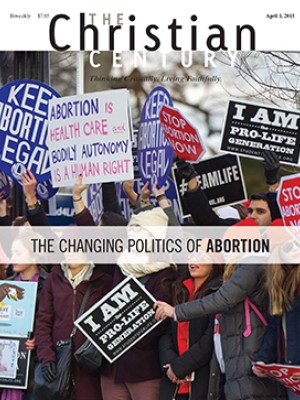Episcopal Church examines policies on alcohol abuse after bishop’s DUI crash
Episcopal Church clergy and laypeople alike are rereading church policy on alcohol and the consecration of bishops after a fatal December crash in Baltimore in which a bishop drove while drunk.
They are discussing how addiction is handled and whether the church itself was in any way culpable in the death of cyclist Thomas Palermo, a 41-year-old husband and father of two.
Gay Clark Jennings, president of the House of Deputies, one of two main governing bodies of the 2-million-member denomination, said many Episcopalians are asking why church leaders allowed Heather Cook to be confirmed as bishop last September despite their knowledge of her struggle with alcohol.
“Sometimes a tragedy happens and people move on after a couple of weeks,” Jennings said. “This particular tragedy has caused many people to not only look at the issue of alcoholism and other drug addictions but also how we select and elect our leaders, our bishops.”
Read our latest issue or browse back issues.
Jennings is appointing a committee to review the church’s policies on alcohol and drug abuse, which date back to 1985, and to propose new resolutions to be considered at the church’s General Convention in Salt Lake City from June 25 to July 3.
In a recent letter to lay and clergy members of the House of Deputies, Jennings suggested that church leaders were too timid in the face of Cook’s problems. The bishop, 58, now faces 13 charges, including vehicular homicide, texting while driving, and leaving the scene of the crime (she later returned).
In 2010, Cook was caught behind the wheel with a blood alcohol level of .27—more than three times the legal limit in Maryland—and pleaded guilty. That information was not disclosed last May when Cook was elected a suffragan, or deputy, bishop of Maryland.
“The church can sometimes confuse secrecy and confidentiality,” Jennings wrote to the deputies. “Our desire for reconciliation can sometimes make us reluctant to confront one another in love.”
The church’s presiding bishop, Katharine Jefferts Schori, who presided at Cook’s consecration last September, has formally restricted Cook’s public ministry, directing her not to present herself “as an ordained person of this Church in good standing.”
As the Episcopal Church’s carefully crafted policy on alcohol use shows, it has hardly ignored the issue. Recovery Ministries of the Episcopal Church—operating independently but alongside the church—help parishes across the country with clergy or congregants struggling with drugs and alcohol. And the church’s flagship General Theological Seminary in New York is one of the few seminaries in the nation to offer a course on how the church can battle addiction.
Leaders of most other major denominations, including some teetotaling Baptists, have acknowledged addiction problems among clergy and laity alike. Still, Bishop J. Scott Barker of Nebraska said he suspects the problem may be particularly acute among Episcopalians.
“I wonder if we’re not using alcohol as a larger system to hide from the hard realities of a church which is under a lot of pressure right now and in decline in a lot of places,” he said. Alcohol “is one way to anesthetize yourself in light of larger trends. Just keep celebrating.”
Barker’s desire to think deeply and clearly at the church’s national meeting this summer, as well as to mark the death of the cyclist, led him to invite other bishops and delegates to join him in abstaining from alcohol at General Convention.
“I’m mindful of the recent tragedy in Maryland, and the chance to make a small witness for delight in sobriety as a bishop of the Church,” he wrote last month on the Nebraska Episcopalian website. “I note that in the Episcopal Diocese of Nebraska so many wonderful disciples are in recovery and could use some support—and so many parish churches are hobbled by alcoholic family systems long in place.”
Shannon Tucker, president of the Tennessee-based Recovery Ministries of the Episcopal Church, said he’s grateful for all the recent attention placed on alcoholism in the church, and for Jennings’s intent to keep the problem in the spotlight when the church gathers in Salt Lake City. But the hard work of battling addiction must also happen elsewhere, he said.
“Passing a resolution and reaffirming the ones we’ve already passed are great things to do,” said Tucker. “It has to be the local diocese and bishops and clergy who decide that they want to join us in our work.”
The church could also prove itself by designating dollars for these efforts, Tucker said.
That could happen, Jennings said, noting that the church will consider addiction issues at the General Convention before it passes a budget.
In the meantime, the Diocese of Maryland has formally asked Cook to resign. After posting bail, she checked herself into an addiction treatment facility. — Religion News Service
This article was edited on March 17, 2014.






